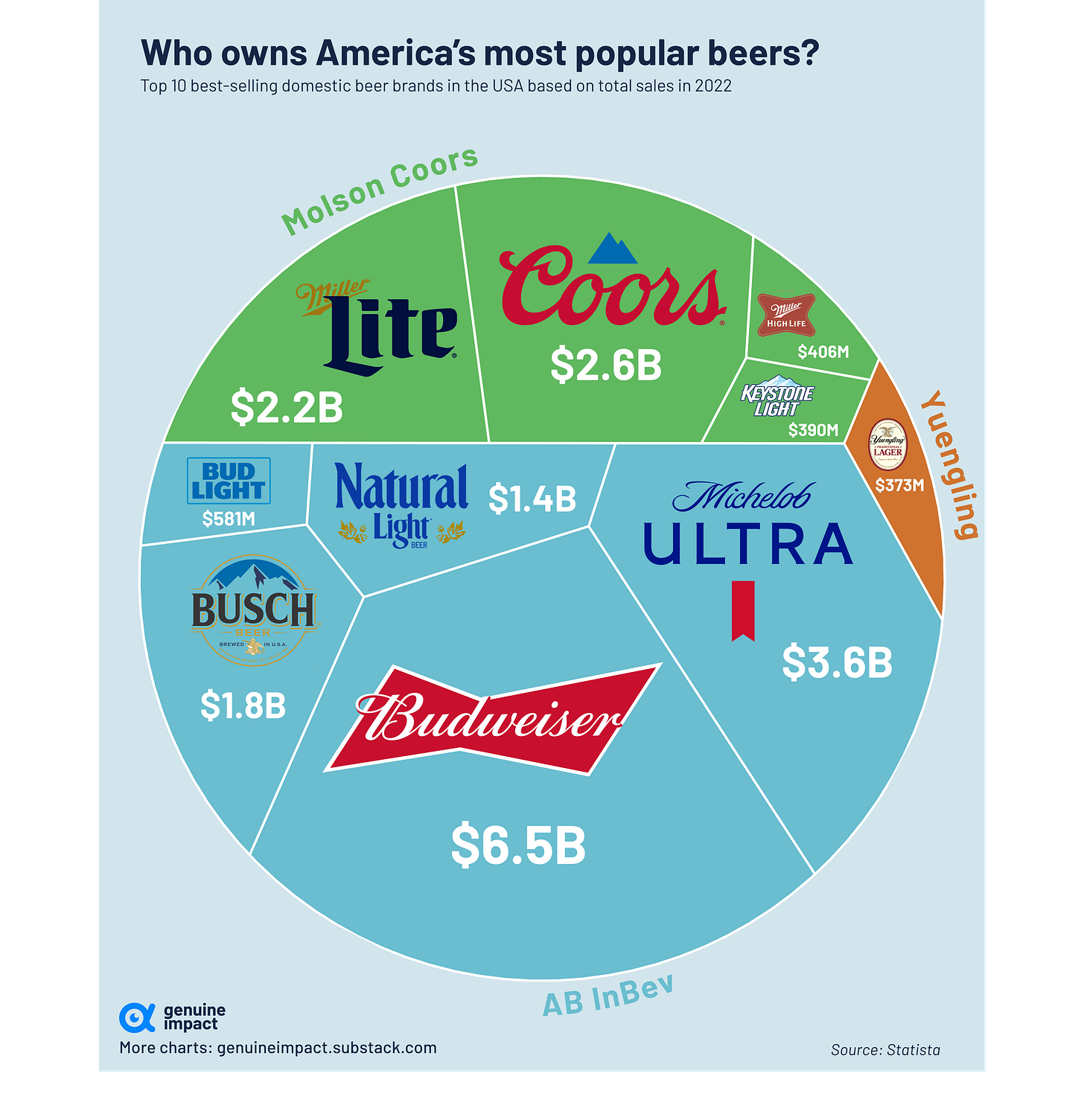Cheers to no competition: Monopolies in the drinks industry 🍺
Whatever you drink, you're buying from the same companies
There’s nothing better than cracking open an ice-cold drink on a hot summer’s day. Whether you enjoy IPAs, pilsners, lemonade, or coke, there’s probably a brand that you thought of when you read that first sentence. Guess what - no matter which brand you thought of, it’s highly likely that it’s owned by one of a select few companies.
America’s favourite beer
In the 12 months ending January 1, 2023, Budweiser basically owned the domestic beer market - propelled mostly by sales of Bud Light. Sales of the brand came to $6.5B, with fellow AB InBev-owned brand Michelob coming in second with $3.6B in sales. The dominance is so strong that despite Coors and Miller Lite coming in 3rd and 4th place, Budweiser and Michelob sales together amount to more than the rest of the top 10 combined.
The two beer giants also own many other global beer brands - Molson Coors owns Carling, Blue Moon and Staropramen for example, while AB InBev brands include Corona, Stella Artois and Hoegaarden.
The 2023 chart may look a lot different. Bud Light’s recent controversial social media campaign with transgender social media influencer Dylan Mulvaney resulted in huge backlash from both anti-LGBTQ+ protestors and the LGBTQ+ community itself, with Mexican beer Modelo Especial taking top spot in the four weeks that ended June 3.
Join 20,000+ Readers Across IB, PE, and VC*
Get caught up with what went down each week across private equity, investment banking, and the public markets.
*sponsored advertising content
The lack of competition is soda-pressing
This one is probably more well-known. Coca-Cola and Pepsi together own 72% of the carbonated soft drinks market; add in Keurig Dr Pepper and the market share goes up to 94%. Any non-supermarket brand carbonated soft drink you pick up next time you’re thirsty is most likely owned by one of the three.
While many of these drinks are popular for good reason, monopolies like these can affect innovation and make it much more challenging for new brands to enter the market and stay independent. However, support for independent breweries has helped grow an ever-popular craft beer movement both in the US and Europe. The soft drink market has also seen rise to numerous smaller niche brands, offering unique flavours and healthier ingredients as a way to sway the public.
See you on Wednesday for more charts on the circular economy!
Created by Miguel
Before you go, we’d like to do a quick survey to help improve the benefits of our paid subscriptions. Please vote!








Regarding the "paid subscriber" poll: the world will bleed you to death with subscriptions if you let it. For information, we have an "information overload". There is more free information than I have time to read. Thus virtually NO motivation to pay for a source. Genuine Impact is one of the best! Very good interesting articles. Yet, still if I lost it because I was forced to pay then I wouldn't miss it at all. I'd just have more time for reading other sources of information.
Please contact me by email:
mikeormston@fastmail.com
to discuss why my Shareholder ‘
Life Membership’ subscription has not been recognised!